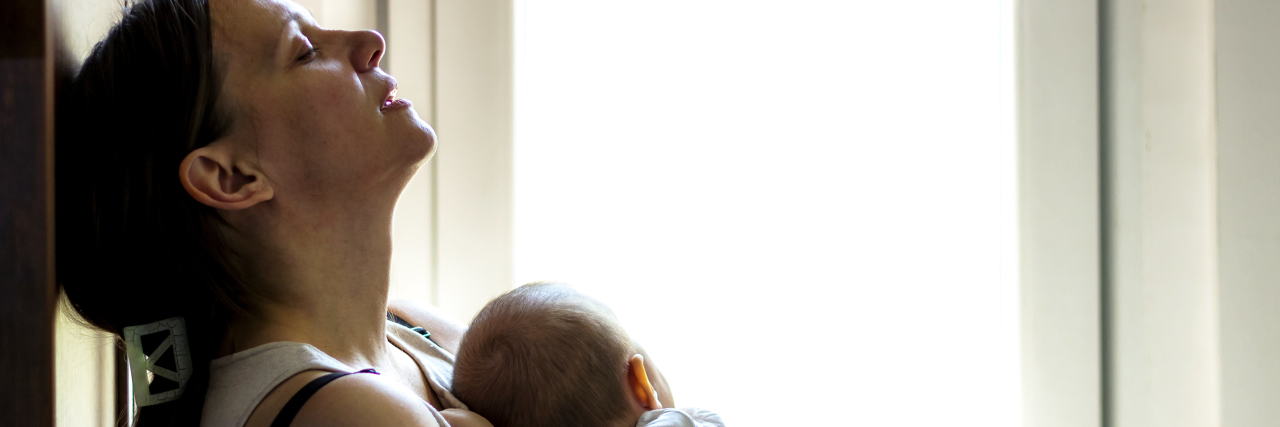The 3 Hardest Words for Me to Say as the Parent of a Child With a Rare Disease
There are three words that I find are the hardest words for me to say. When I say them, I feel vulnerable. Sometimes when said they make me feel like I am not doing a good enough job and I am lacking. Sometimes when said they increase my work load. They are important, though, and I am slowly learning to say them:
I need help.
What is it about being a caregiver and a woman that makes us think we have to do it all? That we have to be able to juggle all the balls in the air by ourselves and if we can’t, we are not doing a good enough job? Why do we have to be the best at all the different things pulling at us — caregiver, parent, spouse, employee, daughter, sister, friend? It is not possible by any stretch of the imagination to give 100% and do our best in each of those categories every day.
Since becoming a mother, and then more heavily when my son was diagnosed, I have felt the weight of the responsibility that is on my shoulders. Taking care of a child with a rare disease is often a full-time job — doctor appointments, therapy appointments, medications, insurance battles, etc. Those responsibilities can be extremely mentally taxing and exhausting. Unfortunately, given the nature of those responsibilities, it is difficult to delegate them. While I can and do have other people take my son to some of the routine doctor appointments and therapy sessions, not being there in person still means I have to talk to the doctor on a conference call, type up all the information needed and directions for the appointment, and follow up as needed. Having someone transport and physically be there is helpful and allows me to not miss as much work, but it does not take the responsibility off my plate entirely.
Asking for help is hard. I do not always know what I need to prevent myself from feeling overwhelmed and at my wit’s end. When I am getting to the breaking point, I also don’t know how to ask for help without feeling like I am failing. There are days I know I need a break, but in the moment I may not be able to take that break. When I do get the opportunity for a break, I may not feel like I need it and use that time to tackle my to-do list instead, because when is the to-do list ever empty?
Other times, the things that weigh on me and that I want help with are not necessarily things I can delegate, or it would take too much time to explain what to do. Getting things off my to-do list (like dinner, pick up from school, dealing with the dishes) are things that are helpful and do make a difference in my stress level. That being said, I feel weird asking someone to do it for me because as a mother and a wife, I guess I feel like I should have the basic chores of the household under control without needing help.
Asking for help is hard for a lot of people, but especially for many parents of kids with rare diseases or disabilities. We are regularly overwhelmed and overworked and sometimes staying in control of the situation is our way of coping with it. But the reality is, we need help and we cannot do it on our own. We need to be able to ask for help and get help that actually does make things a little easier for us. Often, we can’t handle criticism or sometimes even jokes about needing help because it makes us less likely to reach out the next time.
I am very fortunate because I know I have many people who want to help and are willing to help, if only I could reach out and ask for it. Sometimes asking for that help is the hardest thing I can do and beyond asking, I cannot explain what I need; I just need someone else to make the decisions or see something that is plausible to take off my plate and take it. A friend who will randomly call me and tell me she has something in her freezer that is going to go bad, and do I want it? Someone who once in a while will randomly have pizza delivered to me (and/or wine). Someone who calls and says they are at the store and do I need anything? Someone who tells me to drop the kids off for two hours.
These people help me in a way I am grateful for without feeling like I am failing. There are a lot of emotions (vulnerability, failure, fear, rejection) wrapped up in asking for help, and sometimes just asking is the strongest thing you can do.
Getty image by Jelena Stanojkovic

